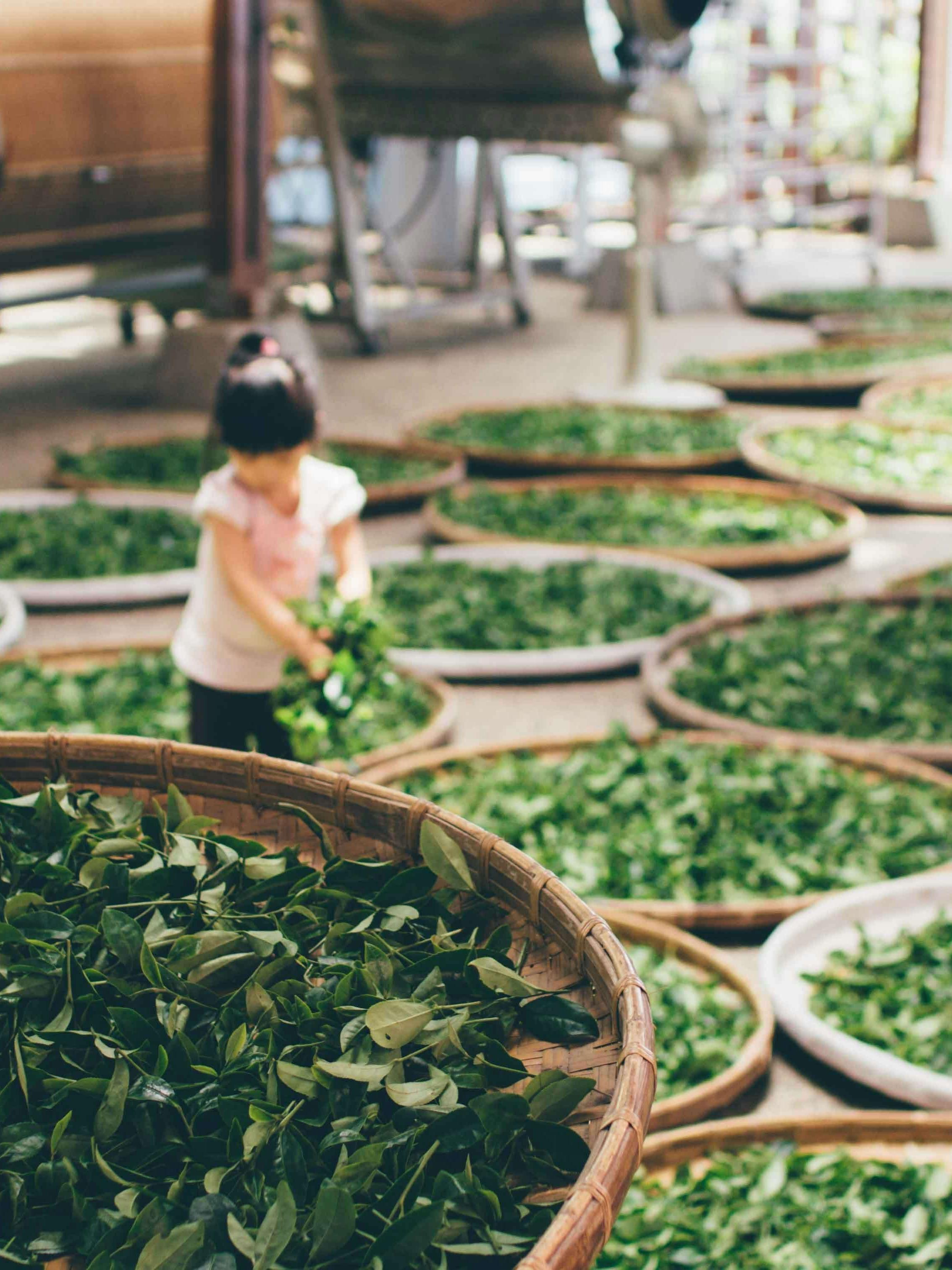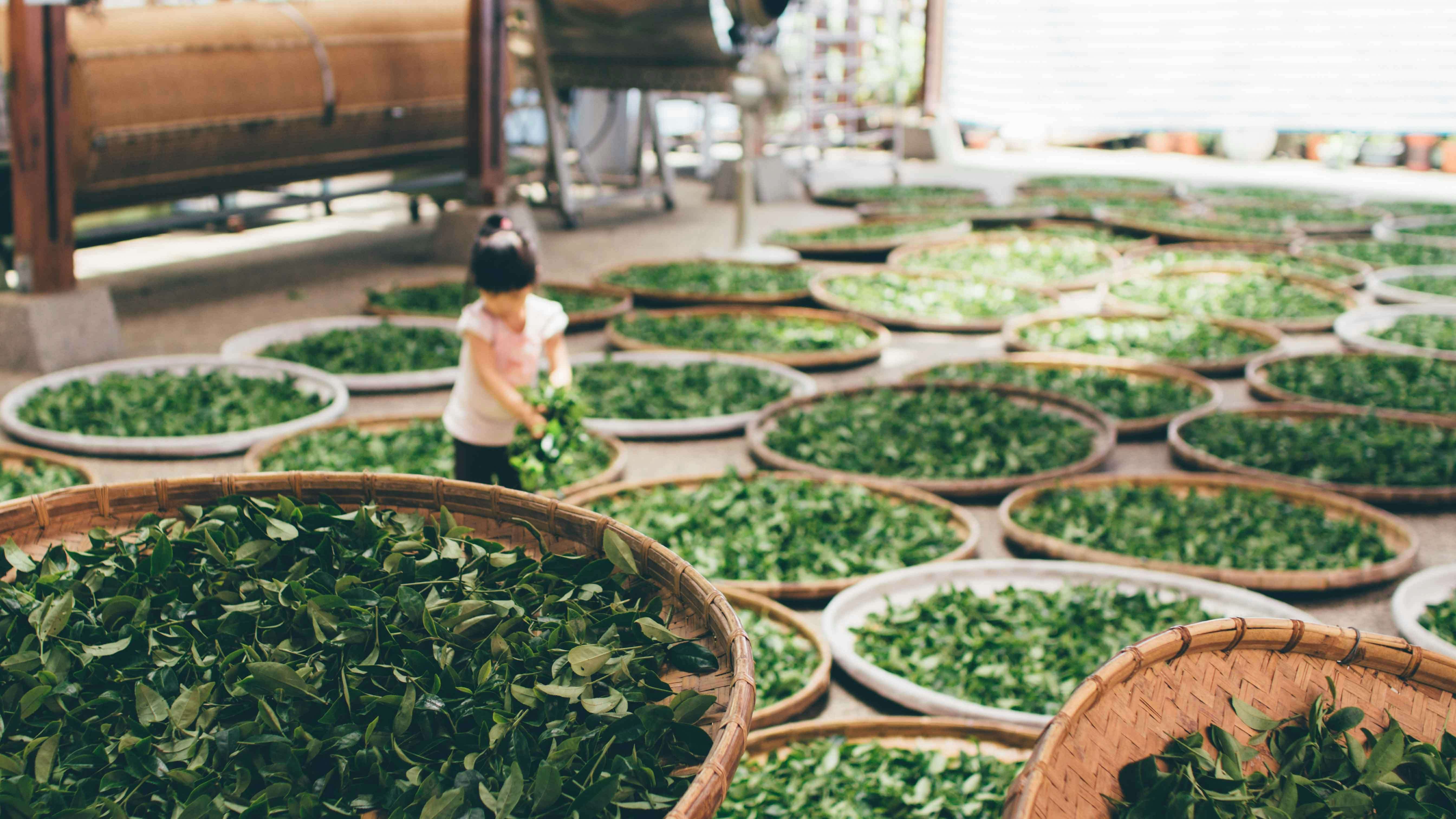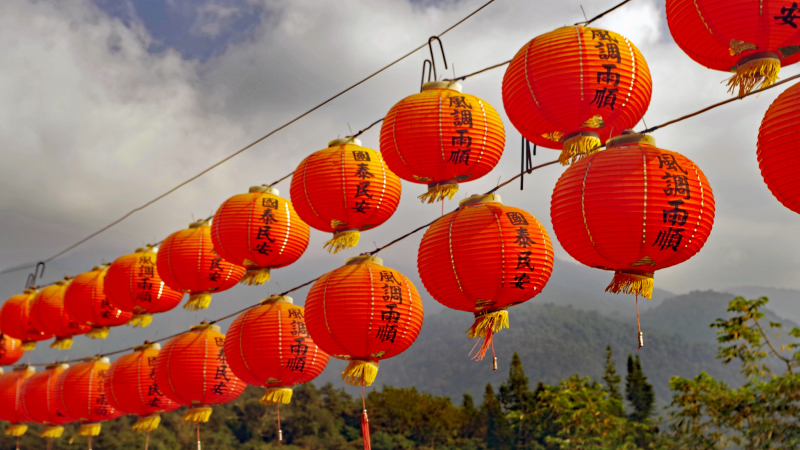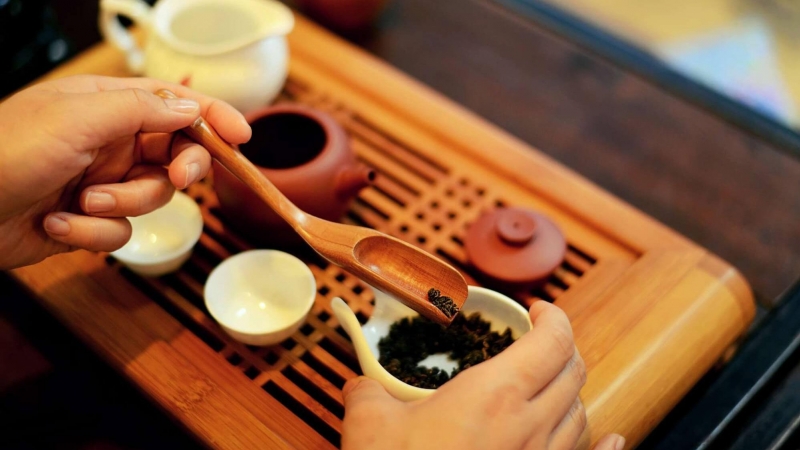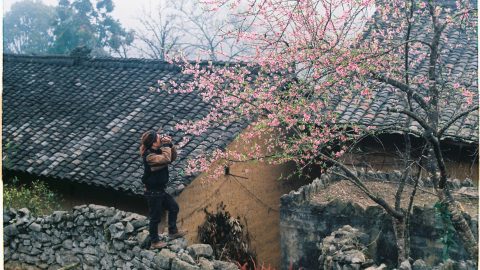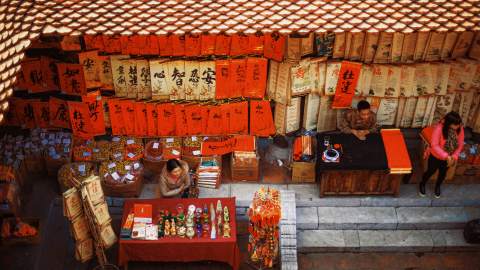Tea-drinking culture in Taiwan
In Taiwan, tea is not just a beverage but an important part of culture and daily life. Traditional tea ceremonies have existed since the 19th century, when tea culture was introduced to Taiwan and customs and practices have been passed down from generation to generation. These rituals are not simply about brewing and enjoying tea, but are also symbols of a unique lifestyle, philosophy, and art.
One of the key elements in traditional Taiwanese tea ceremony is the brewing process. It's not simply a matter of pouring hot water over tea leaves; it's a meticulous and purposeful process requiring precision and skill. The first step is rinsing the tea leaves to remove impurities. Then, the leaves are carefully placed in a teapot or gaiwan (a type of porcelain cup), and hot water is poured in. The tea is steeped for a few seconds before being poured into small porcelain cups, each rinsed several times with hot water. This helps to clean the tea, prevent any mixing of flavors from previous teas, and keep the tea hot.
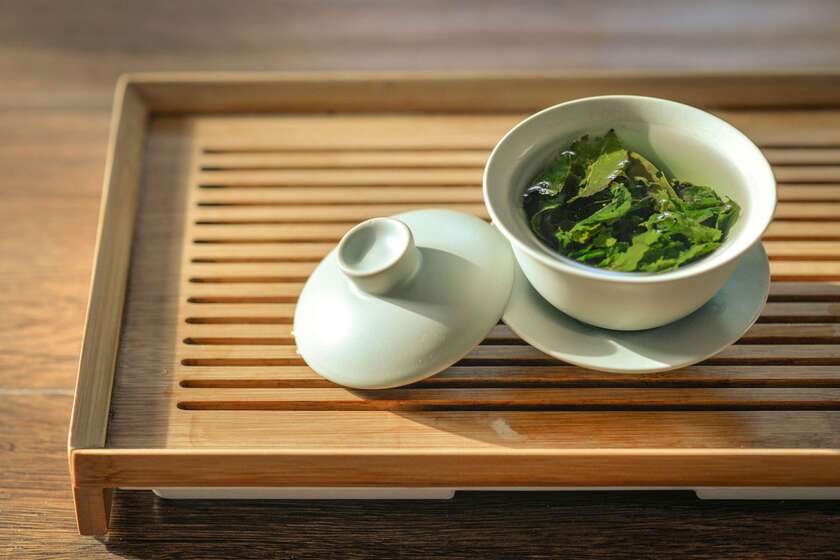
Why is spring the ideal time to enjoy tea?
According to Eastern culture, a year has 24 solar terms, each lasting 15 days, and each season has 6 different solar terms. In spring, the 6 solar terms include:
- Beginning of Spring (Lập Xuân): February 4-5
- Rainy and humid weather: February 18-19
- The period of the caterpillar hatching: March 5-6
- Spring Equinox (mid-spring): March 20-21
- Qingming Festival (clear skies): April 4-5
- Grain Rain (shower): April 20-21
For tea growers, the period from the Awakening of Insects to before the Grain of Rain is the ideal time to harvest spring tea. After its winter dormancy, the tea plant accumulates nutrients, allowing the young shoots to grow vigorously. These shoots contain many nutrients such as amino acids, vitamins, and proteins, making spring tea the highest quality harvest of the year.
Spring is also an ideal time for tea appreciation, associated with unique festivals and cultural experiences. The Pinglin Tea Festival, where visitors can participate in tea picking, processing, and traditional tea brewing, along with famous tea plantations like Alishan and Sun Moon Lake, offers tea-drinking tours that allow visitors to gain a deeper understanding of the tea-making process. The Miaokong area in Taipei also attracts tea lovers with its mountain tea houses, offering cultural exchanges and tea tastings in stunning natural settings. This combination not only enriches the experience but also allows visitors to fully appreciate the spirit of Taiwanese tea ceremony.
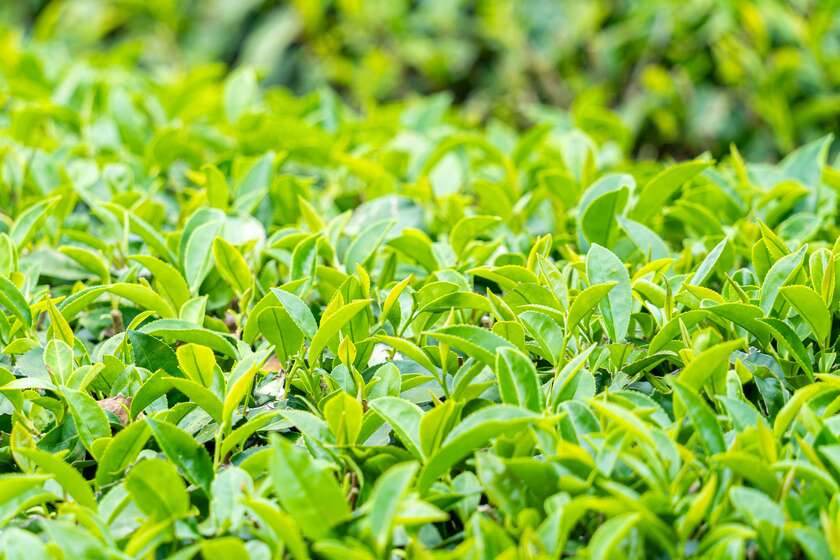
Famous Taiwanese spring teas
Alishan tea is renowned for its buttery sweetness, smooth texture, and easy-to-drink nature – making it the most famous name in Taiwan's world-renowned high-mountain oolong tea line. Alishan is a high-mountain tea-growing region and the first of three spring tea harvests. It also boasts the warmest and sunniest climate, which gives Alishan tea its unique characteristics.
Four Seasons of Spring Oolong Tea, also known as Four Seasons of Spring, is a rather interesting oolong tea variety from Taiwan. It is grown for year-round harvesting (most Taiwanese teas are only harvested in spring), hence its name. Although Four Seasons of Spring Oolong Tea is popular in Taiwan and can be found in almost every tea shop, it's not particularly favored in the West. This tea is also classified as a high-mountain tea and is typically grown in the Alishan region or Nantou County. Its flavor is light, sweet, and creamy, with floral notes reminiscent of jasmine.
Pinglin, a picturesque rural area in southeastern New Taipei City, is one of Taiwan's leading tea-producing regions and the center of the area's renowned Baozhong tea. The Pinglin tea harvest takes place in spring, when the area's terraced plantations are lush and green, creating breathtaking scenery. This tea is also known as "flower tea" due to its distinctive aroma.
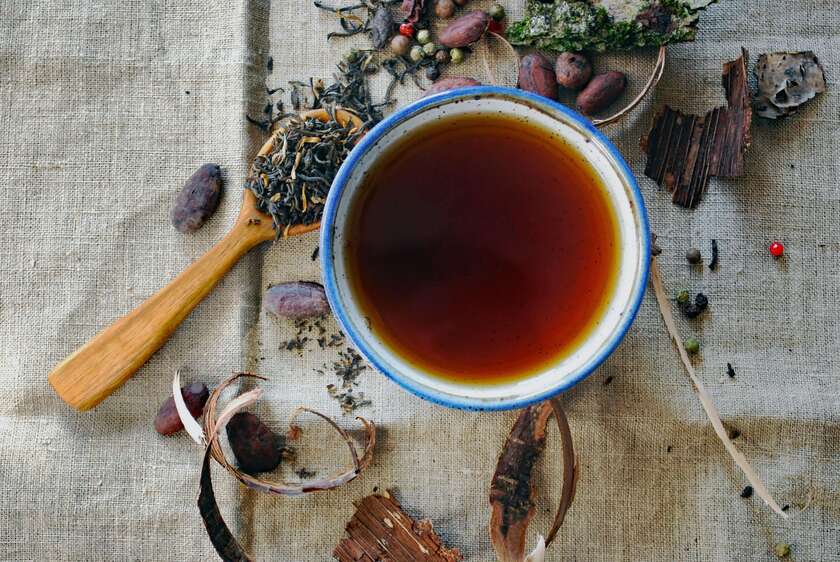
Must-visit tea houses in Taiwan
To fully experience Taiwanese tea culture, from traditional to modern, here are some outstanding tea houses you shouldn't miss when visiting Taiwan:
Hermit's Hut (Taipei)
Address: No. 15, Alley 46, Lane 553, Section 4, Zhongxiao East Road, Xinyi District, Taipei 110, Taiwan
This modern tea house, with its minimalist design, creates an ideal and peaceful space for enjoying tea. It serves a selection of specialty white teas from its own collection, along with organic and local teas. Especially in the evenings, you can enjoy tea-based cocktails. Staff are happy to guide you through the traditional tea-making ritual.
Zhao Zhao Tea Lounge (Taichung)
Address: No. 22, Alley 66, Lane 79, Section 1, Xiangshang Rd, West District, Taichung City, Taiwan
The tea house is located in a 1950s apartment, renovated in a minimalist style with concrete, wood, and glass, creating an airy space. Guests can enjoy tea and experience its aroma right in the central tea roasting area.
Jiufen Tea House (New Taipei City)
Address: No. 142, Jishan Street, Ruifang District, New Taipei City 22448, Taiwan
Located in a building over 100 years old, Jiufen Tea House boasts a unique space with an outdoor courtyard and an octagonal glass-enclosed tea room. It's an ideal destination for those who love tea, historical architecture, and travel.
South Street Delight Tea House (Taipei)
Address: No. 67, 2nd Floor, Section 1, Dihua Street, Datong District, Taipei City 103, Taiwan
This cozy tea house blends history and art. Exquisite interiors, antique wooden furniture, and handcrafted tea sets from Taiwan and Japan create a special tea-drinking space, perfect for those who appreciate sophistication and tranquility.
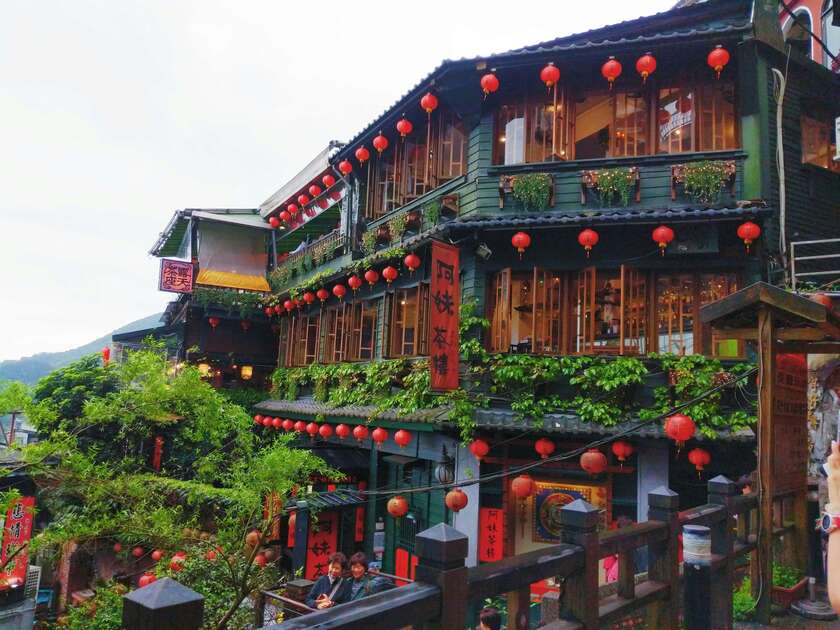
Enjoying spring tea in Taiwan is not only an opportunity to discover the exquisite flavors of tea, but also a journey to immerse oneself in a slower pace of life, savoring the fresh spring colors and clean air. Each cup of tea, whether in a traditional or modern tea house, carries within it the story of Taiwan's land and sky, leaving an unforgettable aftertaste in the heart of the tea drinker.

 VI
VI EN
EN



